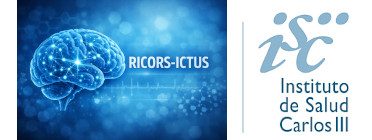Leira Y, Vivancos J, Diz P, Martín Á et al. Neurologia (Engl Ed). 2024 Jan 13:S2173-5808(24)00018-X. doi: 10.1016/j.nrleng.2024.01.002. Online ahead of print. PMID: 38224833
Publicaciones: enero 2024
From Alzheimer’s disease to vascular dementia: Different roads leading to cognitive decline
Semerano A, Fernández-Ruiz J, Cortes-Canteli M, Moro MA. Br J Pharmacol. 2024 Mar;181(6):755-759. doi: 10.1111/bph.16292. Epub 2024 Jan 10. PMID: 38204183
Role of microglia in stroke
Planas AM. Glia. 2024 Jan 4. doi: 10.1002/glia.24501. Online ahead of print. PMID: 38173414
Higher COVID-19 pneumonia risk associated with anti-IFN-α than with anti-IFN-ω auto-Abs in children
Bastard P, Gervais A, Taniguchi M et al. J Exp Med. 2024 Feb 5;221(2):e20231353. doi: 10.1084/jem.20231353. Epub 2024 Jan 4. PMID: 38175961
Correction: Rare predicted loss-of-function variants of type I IFN immunity genes are associated with life-threatening COVID-19
Matuozzo D, Talouarn E, Marchal A et al. Genome Med. 2024 Jan 6;16(1):6. doi: 10.1186/s13073-023-01278-0. PMID: 38184654
Non-invasive brain stimulation for functional recovery in animal models of stroke: A systematic review
Rodríguez A, Amaya-Pascasio L, Gutiérrez-Fernández M et al. Neurosci Biobehav Rev. 2024 Jan;156:105485. doi: 10.1016/j.neubiorev.2023.105485. Epub 2023 Nov 30. PMID: 38042359 Review.
https://www.sciencedirect.com/science/article/pii/S0149763423004542?via%3Dihub
Abstract: Motor and cognitive dysfunction occur frequently after stroke, severely affecting a patient´s quality of life. Recently, non-invasive brain stimulation (NIBS) has emerged as a promising treatment option for improving stroke recovery. In this context, animal models are needed to improve the therapeutic use of NIBS after stroke. A systematic review was conducted based on the PRISMA statement. Data from 26 studies comprising rodent models of ischemic stroke treated with different NIBS techniques were included. The SYRCLE tool was used to assess study bias. The results suggest that both repetitive transcranial magnetic stimulation (rTMS) and transcranial direct current stimulation (tDCS) improved overall neurological, motor, and cognitive functions and reduced infarct size both in the short- and long-term. For tDCS, it was observed that either ipsilesional inhibition or contralesional stimulation consistently led to functional recovery. Additionally, the application of early tDCS appeared to be more effective than late stimulation, and tDCS may be slightly superior to rTMS. The optimal stimulation protocol and the ideal time window for intervention remain unresolved. Future directions are discussed for improving study quality and increasing their translational potential.
Funding: This work was funded by two grants awarded by the Consejería de Salud de la Junta de Andalucía (Ministry of Health of the Andalusian Regional Government), RH-0054-2021 (Torrecardenas University Hospital and University of Almería) and CSyF 2021-Postdoctorales (RPS 24665). Furthermore, this study is part of the Spanish Health Outcomes Oriented Cooperative Research Networks (RICORS-ICTUS), Instituto de Salud Carlos III (Carlos III Health Institute), Ministerio de Ciencia e Innovacion ´ (Ministry of Science and Innovation), RD21/0006/0010 (Torrecardenas University Hospital), RD21/0006/0012 (Hospital La Paz Institute for Health Research).
Implementation of a retinal stroke-code protocol results in visual recovery in patients receiving reperfusion therapies
Bustamante A, Balboa M, Ezcurra G et al. Eur Stroke J. 2024 Jan 8:23969873231221366. doi: 10.1177/23969873231221366. Online ahead of print. PMID: 38189284
Neuroprotection Afforded by an Enriched Mediterranean-like Diet Is Modified by Exercise in a Rat Male Model of Cerebral Ischemia
Romaus-Sanjurjo D, Castañón-Apilánez M, López-Arias E et al. Antioxidants (Basel). 2024 Jan 23;13(2):138. doi: 10.3390/antiox13020138. PMID: 38397735
A Missense Variant in TP53 Could Be a Genetic Biomarker Associated with Bone Tissue Alterations
Usategui-Martín R, Galindo-Cabello N, Pastor-Idoate S et al. Int J Mol Sci. 2024 Jan 23;25(3):1395. doi: 10.3390/ijms25031395. PMID: 38338673
Thrombolytic therapy based on lyophilized platelet-derived nanocarriers for ischemic stroke
Migliavacca M, Correa-Paz C, Pérez-Mato M et al. J Nanobiotechnology. 2024 Jan 3;22(1):10. doi: 10.1186/s12951-023-02206-5. PMID: 38166940

